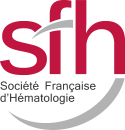Post-doctoral position (2,5 years)
Investigating the role of the mechanotransductor Piezo1
in erythropoiesis and megakaryopoiesis
Research topic: The EPIOX project aims at better undErstanding PIezo1 functiOn in hereditary Xerocytosis: A multi-system approach.
Hereditary xerocytosis (HX), a red blood cell membrane disorders, results from gain-of-function mutations in the gene encoding Piezo1, a mechanosensitive ion channel that translates a mechanic stimulus into a biological signaling. Piezo1 is expressed in many cell types including erythrocytes but also megakaryocytes (MK), platelets, and endothelial cells, actors of the thrombosis process. Splenectomy systematically led to thromboembolic complications in HX patients, suggesting a link between Piezo1 and hemostasis.
The role of Piezo1 has been mostly described in mature RBCs. However, Piezo1 is activated in progenitor cells and plays a role in erythroid differentiation. However, its role during erythropoiesis, how it is impaired in HX and how in vitro data translate towards in vivo erythropoiesis remain largely unknown. Furthermore, to date, the role of Piezo1 in megakaryopoiesis and in thrombopoiesis remains unknown. Importantly, MKs in bone marrow are exposed to mechanical stress that plays a role in proplatelet formation. The role of Piezo 1 in platelet formation and function is supported by our results showing an influx of Ca2+ in an MK lineage and an increase in platelet activation induced by Yoda1, a chemical activator of Piezo1.
To escape from the use of a chemical activator of Piezo1, this project offers the opportunity to use mutated Piezo1 cells and organs obtained either from KI (GOF) mouse model or from HX patients.
Mission: The main mission of the recruited postdoc will be to analyze mouse erythropoiesis
(Prof Loïc Garçon, UR4666) and megakaryopoiesis (Dr Christilla Bachelot-Loza & Prof Pascale Gaussem, U1140) and whenever available, similar studies will be performed from patient blood samples.
Location: The post-Doc will be located in the U1140 laboratory (Université Paris Cité – Faculté de Pharmacie 4 av de l’Observatoire Paris) where the mouse breading is located. Our laboratory offers excellent material conditions to develop this collaborative project. The laboratory is equipped with standard biochemistry and L2 safety level lab dedicated to cell culture. It also offers an easy access to core facilities (imaging, cytometry…).
Profile and skills required: We are seeking for a talented and enthusiastic postdoctoral fellow with a strong interest in cell biology. The candidate should show autonomy, be creative and able to work with two teams. He-She must have authorization for animal experimentation. An experience with confocal imaging and image analysis would be highly appreciated. A previous research experience on megakaryopoiesis or in cell culture is not mandatory but will be a plus.
Application: Please send a cover letter describing your previous experience and research interests, a CV and two reference contacts
to Christilla Bachelot-Loza : christilla.bachelot-loza@u-paris.fr
We are recruiting a postdoctoral fellow that will join us to work on the EPIOX collaborative project in the Laboratory of U1140 (Prof Pascale Gaussem - Paris Cité University) in close collaboration with UR4666 HEMATIM (Amiens). The recruited post-doc will work under the supervision of Dr Christilla Bachelot-Loza and Prof Loïc Garçon. This position is funded by an ANR grant for 2.5 years.
Starting date: the position is available first quarter 2024
Informations
Publié le : 17/11/2023Université Paris Cité – Faculté de Pharmacie
PARIS
France
